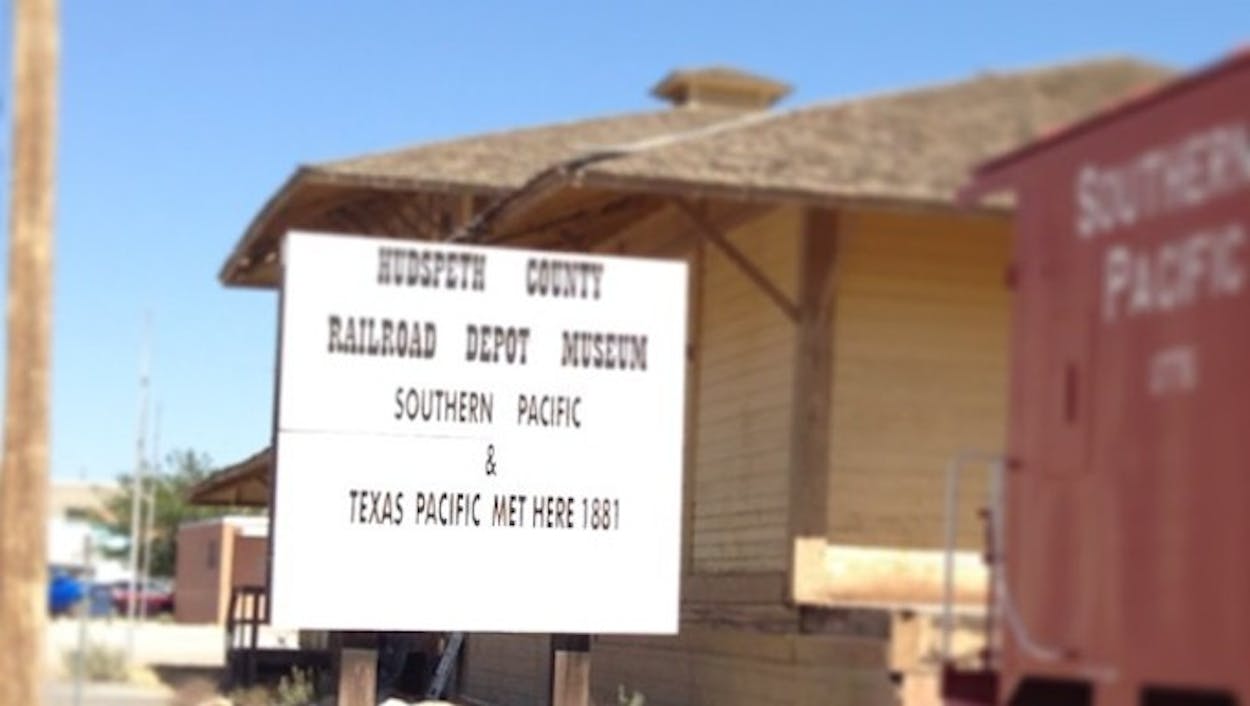The interior Border Patrol checkpoint in Sierra Blanca is famous for its drug busts of musicians from Willie Nelson to Snoop Dogg to Nelly to Fiona Apple. (As well as filmmaker Al Reinert, who wrote about his own experience in the West Texas town for Texas Monthly a few years ago.)
There’s not much in Sierra Blanca. Anybody who’s been there will tell you that. There’s a good Mexican restaurant, a Subway inside of a gas station, an occasionally open gift shop, and a fair number of houses with DirecTV satellite dishes outside of ’em. Snoop and Willie didn’t stop through for such tourist attractions. When you plan a route from, say, Los Angeles to Houston—it makes a lot of sense to take Interstate 10 the entire way, and since you’re never leaving the U.S., it might not occur to you that your car will be stopped and inspected by the Border Patrol about 85 miles east of El Paso. And then, of course, you’re getting booked, fingerprinted, and photographed at the Hudspeth County Jail.
Or, at least, that’s how it has worked—both for the famous musicians who’ve been caught in Sierra Blanca and for the countless less notable people who’ve been busted for a few joints (or more) in the town. But now, Sheriff Arvin West has declared that he’s done wasting Hudspeth County taxpayers’ on that. As NPR reports:
[F]or the past year, Hudspeth County Sheriff Arvin West has refused to take any more “checkpoint cases,” even those involving commercial quantities of marijuana worth thousands of dollars.
“I don’t have a problem whatsoever going out there and arresting them,” West says. “I just have a problem making my local taxpayers foot the bill for America’s problem. I’m not gonna do the federal government’s job.”
The money involved in arresting and holding people in marijuana busts has long been a sticking point in Hudspeth County. The way it works, the county pays the upfront costs that come with arresting, housing, and feeding its catches, and then waits (and waits and waits) for reimbursements from the federal government. When I went to Sierra Blanca a few years ago, the sheriff’s brother Wayne West, the Hudspeth County Commissioner, explained that those costs can really add up, especially if they’ve got someone in custody with a medical problem such as diabetes and have to provide insulin or other medication.
As the NPR story notes, it’s not so much that West is opposed to enforcing marijuana laws as he resents that he gets so many referrals from the checkpoint.
[W]hen a person is busted for 35 pounds of marijuana in downtown Sierra Blanca — such as it is — he faces a second-degree felony and prison time. But if that person gets caught with the same size load at the federal checkpoint, he walks — unless there are aggravating circumstances, such as a weapon involved.
That’s bad luck if you’re the weed dealer eating breakfast at Michael’s Mexican Restaurant who left his trunk open as a deputy pulls up, but it also does highlight part of the issue here, which is that people who live near those interior Border Patrol checkpoints—whether civilians or law enforcement—seem very uncomfortable with this intrusion of the federal government into their town. When I wrote about Sierra Blanca for the Texas Observer in 2013, that was something that Wayne West talked about.
That drive between Sierra Blanca and El Paso is one that everybody in Hudspeth County knows well. The Exxon station in Sierra Blanca sells a few staples, and there’s a small supermarket in Van Horn, 35 miles to the east, but if a Sierra Blancan needs to stock up on a month’s worth of groceries—or attend a movie theater, or buy a computer, or try on new school clothes—they have to drive the 88 miles west to El Paso. To get back home, they have to answer questions from a Border Patrol agent at the checkpoint, and those interactions can be unpleasant, even downright antagonistic. “It can get pretty vulgar,” West confirms.
That contentious relationship has existed between people in Hudspeth County and the Border Patrol and federal agents for some time, so it’s not really a surprise that Arvin West would decide that he’s done using his department to enforce the cases that are sent to him from the checkpoint—but if you’re a rock star passing through West Texas, you’re probably breathing easier now anyway.








